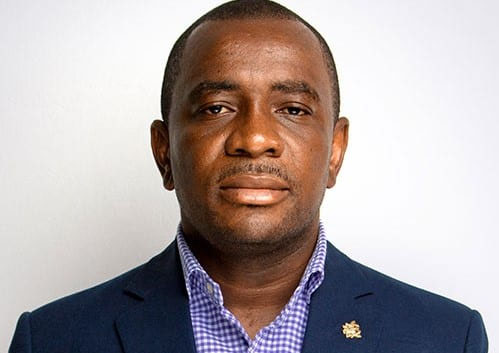Kennedy Osei Nyarko
The mandatory Towing Levy agenda that sparked heated debate in the country in 2017 is coming back strongly following the spate of road accidents that are claiming precious lives on the country’s roads.
The project was to be carried out by Road Safety Management Limited (RSML), but the Ministry of Transport in August 2017 said it could not be done due to public outcry.
However, the rate of carnage on the roads, particularly as a result of broken down vehicles, is bringing the debate back to the front burner.
Kennedy Osei Nyarko, NPP MP for Akim Swedru, who is the Chairman of the Parliamentary Select on Road and Transport Committee, told DAILY GUIDE yesterday that the country cannot continue to pretend that all is well when many lives are being lost on the roads on a daily basis.
He said, “I do not think we need to shelve this idea any longer. We should have bitten the bullet in 2017 when the idea came up. Our roads are not safe and the broken down vehicles are still causing major harm to people and our economy.”
He said that the issue of Mandatory Levy has to come up again and added that “we should not politicise this issue this time around. We need to discuss it dispassionately since it has become a national health emergency.”
He said he has been an advocate on road safety and the way drivers are misbehaving on the roads has become a major concern.
“After four years of rejecting the Mandatory Road Levy, we have all seen how this has caused the country. We need to bring back the conversation and let the public understand that lives are more precious,” he said, adding, “I am not sure such an annual levy is worth more than the loss of human lives on our roads through avoidable accidents.”
Engineer David Osafo Adonteng, Director of Planning and Programmes at the National Roads Safety Authority (NRSA), admitted on Oman FM in Accra last week that the broken down vehicles issues is becoming an impediment in the efforts to ensure safety on the roads, and said there was the need to take a second look at the Mandatory Road Levy.
He said the carnage on the road is still going on despite the numerous education programmes on road safety, saying, “Our major objective is to reduce the fatalities on our roads to the barest minimum but there are many impediments towards that goal.”
Kwaku Ofori Asiamah
The Minister of Transport, Kwaku Ofori Asiamah, on his tours during the Easter holidays, said they have been working hard to reduce road carnage in the country but the deaths continue to occur mostly due to the negligence of drivers.
He said any death associated with road carnage is regrettable and said the effort to bring sanity on the road should be intensified.
“I think we don’t have to be proud of the statistics. The figures are not good. We don’t even have to go into it,” he said.
Gory Statistics
National Road Safety Authority (NRSA) and other independent data are showing that about 2,000 road crash accidents occur annually on the average, and that translates into six deaths on our roads daily.
Road Traffic accidents cost the country some 1.6 per cent of GDP, which is around about $800 million.
From 2015-2020, about 13,000 Ghanaians have lost their lives through road crashes.
In 2015, 1,802 persons lost their lives through road accidents and by 2016 it had increased to 2,284.
The road accident deaths reduced to 1,823 in 2017 and went up again to 2,020 in 2018, moved up again in 2019 to 2,284 and by last year it had hit a record 2,589 deaths.
By Ernest Kofi Adu


